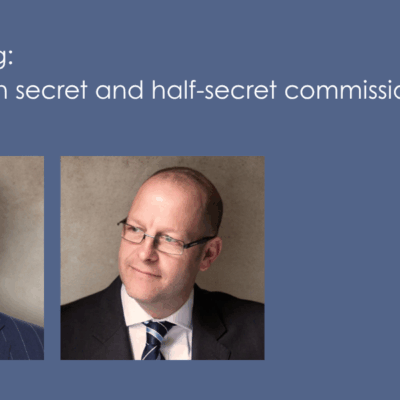[2020] EWHC 2952 (Comm)
The Commercial Court (Nicholas Vineall QC) handed down a decision on quantum of damages in relation to a dispute between a Channel-Islands based wealth manager and a BVI-incorporated introducing broker. There have been two previous decisions in the proceedings, reported at [2018] 1 WLR 314 (Teare J) and [2019] 1 WLR 4481 (Court of Appeal). The Defendant had been found to be in breach of its contract with the Claimant, but questions remained concerning the correct approach to the assessment of damages, and the quantum of damages, due to the Claimant.
Of note in the latest judgment is the deputy judge’s consideration of the “fair wind” principle (as discussed in Marathon Asset Management LLP v Seddon [2017] EWHC 300 (Comm)) leading to a conclusion that the Claimant should be granted a fair wind, but not a free ride, when damages were assessed. The deputy judge therefore declined the Claimant’s request to make wholesale variations to the figures for the Claimant’s damages prepared by the Defendant ([85]-[110]). The decision is also of interest for how the Court found itself not to be bound by judicial comment earlier in the same case, made at the liability stage of the proceedings. In the Commercial Court’s liability judgment Teare J noted that the assessment of the Claimant’s loss would have to take into account sums payable by the Claimant to its own sub-brokers, to avoid over-compensating the Claimant. The Claimant nevertheless sought damages in a sum which did not take into account payments to sub-brokers. Mr Vineall QC held that the decision of Teare J did not give rise to an issue estoppel, the Claimant’s arguments were not an abuse of process, and that Teare J’s finding on the point was obiter ([45]-[55]).




![Delivery matters: Gaster v. HMRC [2025] EWHC 328](https://threestone.law/wp-content/uploads/2024/01/Hallett_Katherine-400x400.jpg)
